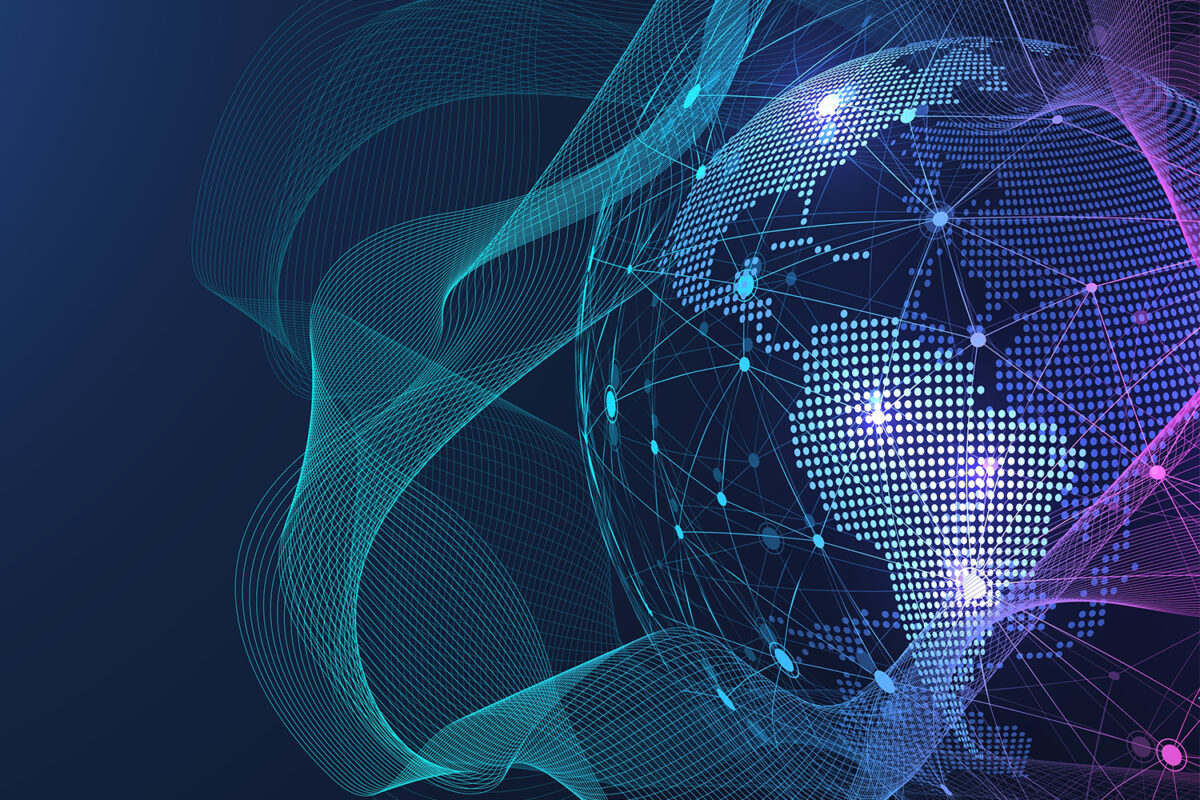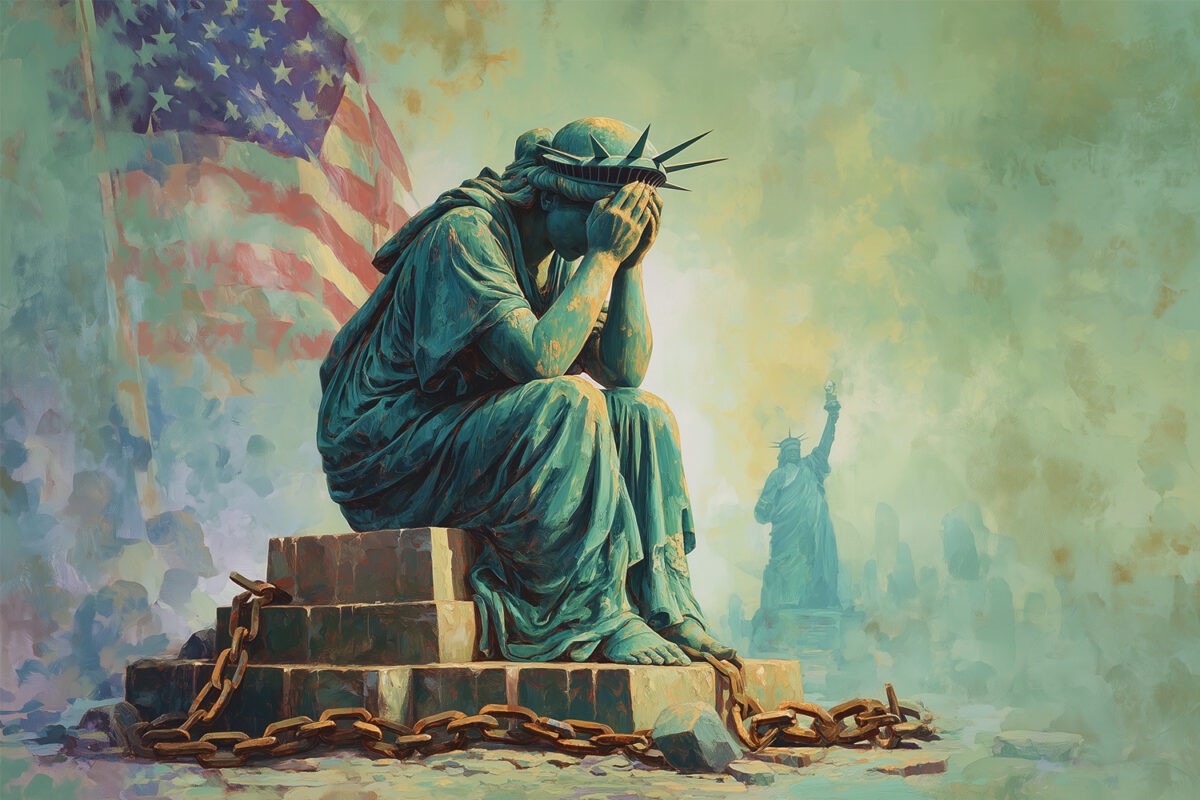Thousands of the world’s elite gathered in Davos in January 2023 for an annual event where the agenda is surprisingly, very open: The Great Reset.
The meeting of the World Economic Forum attracted heads of state from all over the world, the CEOs of Amazon, BlackRock, JPMorgan Chase, Pfizer and Moderna, the President of the European Commission, the IMF’s Managing Director, the secretary general of Nato, the chiefs of the FBI and MI6, the publisher of The New York Times, and the event’s infamous host — founder and chairman of the WEF, Klaus Schwab. [1]
How did a conference that is also being streamed online turn into cannon fodder for conspiracy theorists?
Initially coined by the World Economic Forum (WEF) itself – the Great Reset was presented as an economic recovery plan following the COVID-19 pandemic in June 2020, with a video featuring the then Prince of Wales Charles released to mark its launch.
A number of issues were tabled for this year’s gathering. Firstly, it was set to address investment in green infrastructure and the transition to a low-carbon economy, along with supporting the digital economy accounting for the challenges and opportunities they both provide. Then, it was poised to promote economic policies that support sustainable and inclusive growth whilst reducing income and wealth inequality through progressive tax policies and social programs. Last but not least, the overall global challenges of poverty and disease were set to be addressed.
In 2021, Klaus Schwab published a book titled COVID-19: The Great Reset. In his book, he defined the Great Reset as a means of addressing the “…weaknesses of capitalism…” that were purportedly exposed by the COVID pandemic.
Specifically, the term “Great Reset” came into general circulation over a decade ago, with the publication of a 2010 book, The Great Reset, by American urban studies scholar Richard Florida. Written in the aftermath of the 2008 financial crisis, Florida’s book argued that the 2008 economic crash was the latest in a series of Great Resets – including the Long Depression of the 1870s and the Great Depression of the 1930s – which he defined as periods of paradigm-shifting systemic innovation.
Four years after Florida’s book was published, at the 2014 annual meeting of the WEF, Schwab declared: “What we want to do in Davos this year…is to push the reset button” – and subsequently the image of a reset button would appear on the WEF’s website. [2]
In 2021, Klaus Schwab published a book titled COVID-19: The Great Reset. In his book, he defined the Great Reset as a means of addressing the “…weaknesses of capitalism…” that were purportedly exposed by the COVID pandemic.
Public-Private Co-operation
One of the stated aims of the WEF is that it will be “…committed to improving the state of the world through public-private cooperation”.
In this new arrangement, decision making will not be left to governments and nation-states alone – rather, it will have the input of a variety of non-government “stakeholders”; civil society bodies, academic experts, media personalities and, most important, multinational corporations. While this has arguably always been a key feature of liberal capitalism, it has rarely been given a platform that presents itself in this manner.
Although environmental activist Greta Thunberg has become the poster-child of the WEF, there is little doubt as to which interests Schwab is actually promoting and empowering; the WEF is itself mostly funded by around 1,000 member companies — typically global enterprises with multi-billion dollar turnovers, which include some of the world’s biggest corporations in oil (Saudi Aramco, Shell, Chevron, BP), food (Unilever, The Coca-Cola Company, Nestlé), technology (Facebook, Google, Amazon, Microsoft, Apple) and pharmaceuticals (AstraZeneca, Pfizer, Moderna). [3] The Great Reset is a doubling down of Western corporate policy around the world rather than a new direction.
Two key events first changed the way the Great Reset is now perceived.
Clade X and Event 201
“The pandemic represents a rare but narrow window of opportunity to reflect, reimagine, and reset our world” – Professor Klaus Schwab [4]
In May 2018, the WEF collaborated with the Johns Hopkins Center for Health Security to conduct “CLADE X,” a simulation of a national pandemic response. The exercise simulated the outbreak of a novel strain of a human parainfluenza virus, with genetic elements of the Nipah virus, called CLADE X. The simulation ended with a news report stating that in the face of CLADE X, without effective vaccines, “…experts tell us that we could eventually see 30 to 40 million deaths in the US and more than 900 million around the world – 12 percent of the global population.” Clearly, preparation for a global pandemic was in order.
In October 2019, the WEF collaborated with Johns Hopkins and the Bill and Melinda Gates Foundation on another pandemic exercise, “Event 201” which simulated an international response to the outbreak of a novel coronavirus. This was two months before the COVID outbreak in China became news and five months before the World Health Organization declared it a pandemic, and it closely resembled the future COVID scenario, including incorporating the idea of asymptomatic spread. [5]
Every eventuality of the impending COVID crisis was anticipated, from the government response, to actions from the health services, the media, tech companies and even the public. These responses included worldwide lockdowns, collapse of business and industry, unemployment, widespread riots and the adoption of biometric surveillance technology and the censorship and “fact checking” that has become so prevalent from social media platforms. It is safe to say that when the COVID pandemic broke out, the WEF was well-positioned to take a central role in the pandemic response.
It is little wonder that any talk of crisis management and change from a globalist organisation is met with scepticism and even suspicion. This hasn’t stopped the WEF from pushing ahead with its programme for what is to come ahead.
Crisis Management
“So, our third action is to rewire the entire global financial system for Net Zero.” – Rishi Sunak [6]
While change and innovation has always been a by-product of challenging times, there is now a wide perception that periods of crisis are being exploited, at best — and at worst, manufactured to induce “paradigm-shifting systematic innovation”.
The WEF is now promoting the same top-down corporate-driven approach in a wide range of other domains, from energy to food and from climate to global surveillance policies — with equally dramatic consequences. Even in the face of growing widespread opposition, governments are pursuing WEF’s strategy as it is no secret that the international organisation has managed to infiltrate them through its Young Global Leaders initiative. Launched in 1992, its attendees and participants make up a list of some of the most influential individuals who eventually came to power: Tony Blair, Gordon Brown, Angela Merkel, Victor Orbán, Nicholas Sarkozy, Guy Verhofstadt and José Maria Aznar.
In 2017, Schwab admitted to having used the Young Global Leaders to “…penetrate the cabinets” of several governments, adding that as of 2017, “…more than half…” of Canadian Prime Minister Justin Trudeau’s cabinet had been members of the programme. Today, a man listed on the WEF website came to power with very limited political experience, the UK’s Prime Minister Rishi Sunak. His plans to replace cash with official digital currency is considered as the biggest upheaval in the monetary system for centuries – meanwhile a Universal Digital Payments Network (UPDN) for stable coins and Central Bank Digital Currencies (CBDCs) was launched at the WEF in Davos annual conference in January 2023.
But it isn’t limited to this – the Great Reset presents itself as a revolution that must be adopted with open arms by all to face the imminent challenges of tomorrow. It presents itself as the harbinger of a new Industrial Revolution.
In 2017, Schwab admitted to having used the Young Global Leaders to “…penetrate the cabinets” of several governments
The Fourth Industrial Revolution
The Industrial Revolution was a process of change from an agrarian and handicraft economy to one dominated by industry and machinery. It can be split into three distinct phases. First, the use of steam and water power in mechanisation. Second, the harnessing of electric power for mass production, Finally – automation, robotics and IT systems.
According to the WEF, we are now entering an exciting phase of the fourth industrial revolution where the Smart factory, Internet of Things, Artificial Intelligence and Big Data reshape our society.
Shwaub states that it is “the fusion of these technologies and their interaction across the physical, digital and biological domains that make the fourth industrial revolution fundamentally different from previous revolutions” [7]. WEF member and author Yuval Noah Harari adds “…when people talk about merging with computers to create cyborgs, it’s not some prophecy about the year 2200. It’s happening right now.” [8]. It is a future where people who are being visually stimulated through digital “metaverses” as part of their daily routine are considered normal, and where “transhumanism” is seen as the next step towards progress. It is a future where animal agriculture is considered a crime and eating insects is actively promoted to tackle poverty. [9] A future where, in a video for the WEF’s “8 predictions for the World in 2030” it was stated, “You’ll own nothing. And you will be happy” before it was removed amid huge controversy. [10]
As with the COVID crisis, the WEF and its Great Reset Agenda has placed itself at the forefront of dealing with a host of disasters that mankind is set to face
As with the COVID crisis, the WEF and its Great Reset Agenda has placed itself at the forefront of dealing with a host of disasters that mankind is set to face – and the advice from Davos is that we must adopt technology that will change the way we live and interact forever quickly to survive challenging times. It comes as no surprise then that when WEF “Agenda Contributor”, Bill Gates, was named as the biggest private owner of farmland in the US, many voiced their concerns. [11]
But why is all this happening now?
Protecting Liberalism
In his book, ‘The Great Awakening vs The Great Reset”, Russian philosopher Alexander Dugin writes that the world is fighting back against liberalism and globalism. Russia, China and the Islamic world’s continued resistance to Liberal reforms, Populism across Europe and the rise of Trumpism (with its, cosmetically at least, protectionist, anti-NATO and nationalistic style of politics) are some of the main examples of resistance that he goes at some length to cite.
To deal with this, he says, the global elite have decided to maintain the crumbling liberal world order by controlling and managing societies using a variety of emergency measures such as global pandemics and NATO aggression towards Russia. He believes the emergence of next generation technology to deal with, what he believes are manufactured problems, will be used to keep critics of the international order at bay.
For some the strategy resembles the Chinese model of governance – in that a zero tolerance approach is being taken to dissent against liberalism, and this is to be managed through tech similar to China’s social credit scoring system that freezes people out of the economy for what the state deems “bad behaviour”.
The complete eradication of cash will make the ability to freeze the finances of dissidents at the press of a button a simple process – total financial surveillance is becoming a growing reality. The exponential growth of Artificial Intelligence has allowed software to process mind-boggling information and have wider uses for those who control data with predictive qualities. Will this all be used to monitor human behaviour?
Whether globalists use legitimate or manufactured fear of future catastrophes to achieve their aims, they are extending capitalism and taking it to its logical conclusion
COVID-19 also saw the biggest transfer of wealth in human history where the richest 1 percent grabbed nearly two-thirds of all new wealth worth $42 trillion created since 2020, almost twice as much money as the bottom 99 percent of the world’s population. [12] Unsurprisingly, some of the biggest beneficiaries were tech companies. [13]
Ultimately, the WEF, the Great Reset and the Fourth Industrial Revolution are being viewed by many as an aggressive fightback against dissent by globalists. Their incredible influence over governments is being used to silence dissent, to maintain a sick liberal world order domestically and internationally. On an individual scale, tech is being used to cancel and ruin outspoken individuals who question mainstream narratives. At a state level, entire nations have been given a financial shakedown by freezing their assets and attacking them by directly arming their enemies. Whether globalists use legitimate or manufactured fear of future catastrophes to achieve their aims, they are extending capitalism and taking it to its logical conclusion. As the unipolar world order fragments, the WEF and the Great Reset have simply become the latest vehicle for them to do what they can to hold it together.
[1] How the Davos elite took back control – UnHerd
[2] What Is the Great Reset? | River Cities’ Reader (rcreader.com)
[3] How the Davos elite took back control – UnHerd
[4] https://www.weforum.org/focus/the-great-reset
[5] The Great Reset | World Economic Forum (weforum.org)
[6] Cop26 Finance Day Speech, November 3, 2021
[7] Klaus Schwab, The Fourth Industrial Revolution
[9] 5 reasons why eating insects can reduce climate change | World Economic Forum (weforum.org)
[10] WEF: 8 Predictions for the World in 2030
[13] How Big Tech Won the Pandemic – The New York Times (nytimes.com)




